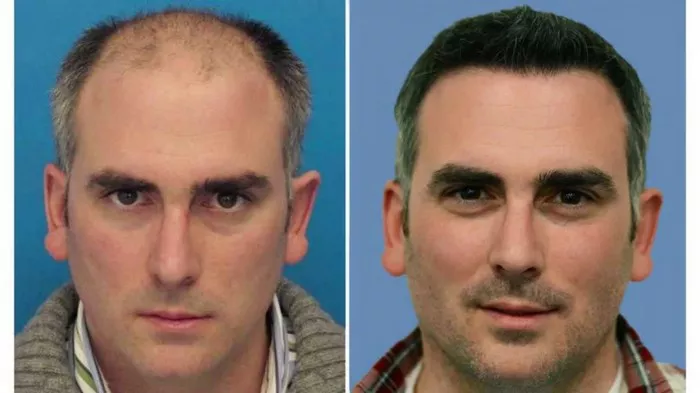Hair transplant procedures have become a popular solution for individuals seeking to regain a fuller head of hair. However, concerns about post-transplant care, including the effects of sweating, are common. In this guide, we’ll explore whether sweating can impact the success of a hair transplant and provide insights into proper aftercare to ensure optimal results.
What is the process of a hair transplant?
A hair transplant is a surgical procedure that involves moving hair follicles from one part of the body, typically the back or sides of the scalp, to areas with thinning or no hair. The process begins with local anesthesia to numb the donor and recipient areas. Then, hair follicles are extracted using techniques like follicular unit extraction (FUE) or follicular unit transplantation (FUT). Tiny incisions are made in the recipient area, and the extracted follicles are carefully implanted. The transplanted hair gradually grows over several months, resulting in a more natural and fuller appearance.
Are Hair Transplants Successful?
Hair transplants can be successful when performed by experienced surgeons and followed by proper aftercare. The success of a hair transplant depends on various factors including the surgeon’s skill, the patient’s suitability for the procedure, and adherence to post-operative instructions. Most modern techniques, such as Follicular Unit Extraction (FUE) and Follicular Unit Transplantation (FUT), offer natural-looking results. Transplanted hair typically starts to grow within a few months and continues to improve over time. However, individual results may vary and it’s important to have realistic expectations and consult with a qualified professional before undergoing the procedure.
Does Sweating Affect Hair Transplant Success?
Sweating can potentially impact the success of a hair transplant during the initial recovery phase. Excessive sweating can introduce bacteria and irritate newly transplanted follicles, increasing the risk of infection or graft dislodgement. Following proper aftercare instructions provided by the surgeon is crucial to mitigate these risks. This may include avoiding strenuous activities, saunas, and exposure to high temperatures during the initial healing period. As the scalp heals and grafts become more stable, the impact of sweating on the transplant’s success diminishes. Consulting the surgeon and adhering to their guidelines can help ensure optimal results.
Precautions after hair transplant
Taking proper precautions after a hair transplant is essential to ensure optimal healing and the success of the procedure. Here are important precautions to follow:
1. Follow Aftercare Instructions:
Adhere to the specific aftercare instructions provided by your surgeon. These might include how to wash your scalp, when to resume regular activities, and any medications to take.
2. Avoid Sun Exposure:
Protect your scalp from direct sun exposure for a few weeks post-transplant. Wear a hat or use sunscreen to prevent sunburn and minimize potential irritation.
3. Minimize Physical Activity:
Avoid strenuous exercise and activities that can induce sweating during the initial recovery period, as sweat can irritate the healing scalp.
4. Gentle Hair Washing:
Follow your surgeon’s guidance on when and how to wash your hair. Use a mild shampoo and avoid vigorous rubbing.
5. Be Careful Sleeping:
Sleep with your head elevated and avoid putting pressure on the transplanted area. Use a travel pillow or a soft pillow for support.
6. Avoid Scratching:
Refrain from scratching or touching the transplanted area to prevent dislodging grafts or causing irritation.
Following these precautions and guidelines diligently will help ensure a smooth recovery, minimize complications, and contribute to the long-term success of your hair transplant. Always consult your surgeon for personalized advice based on your specific procedure and needs.
Conclusion
Sweating, especially in the initial days after a hair transplant, can impact the healing process and potentially affect the success of the procedure. Following proper aftercare guidelines provided by your surgeon is crucial to minimize risks associated with sweating. While sweating might be a concern, rest assured that with diligent care, you can ensure optimal results from your hair transplant and enjoy the benefits of a fuller head of hair.


